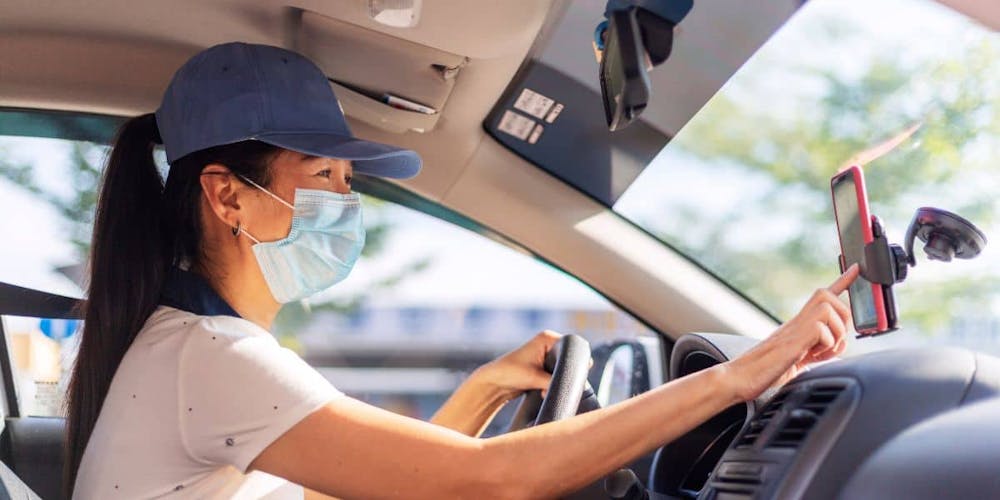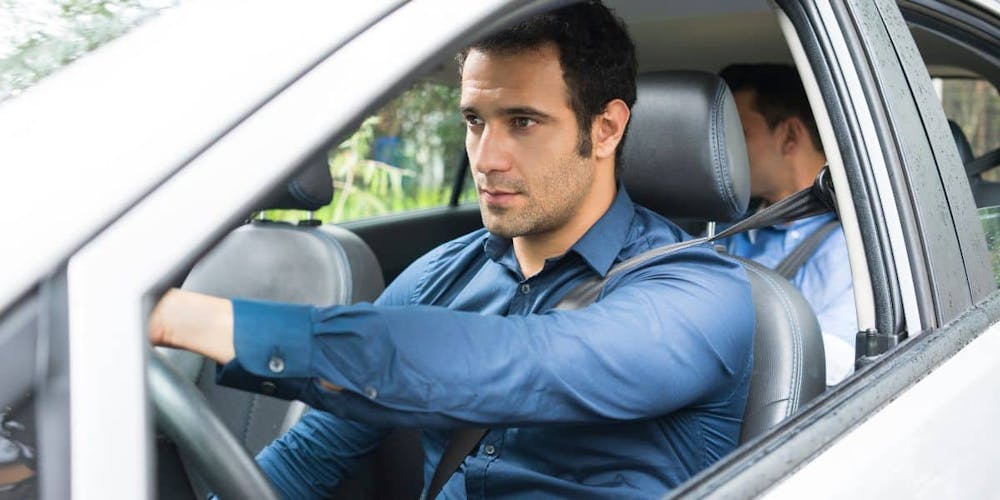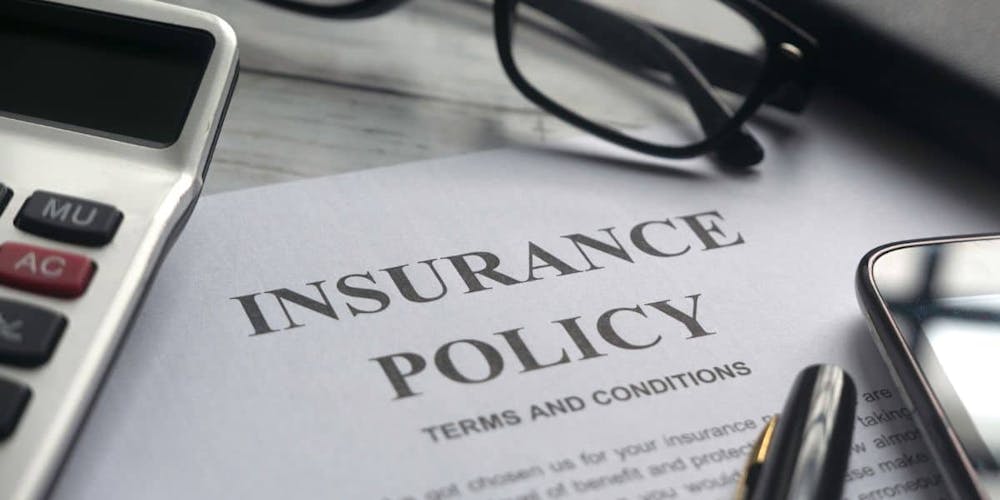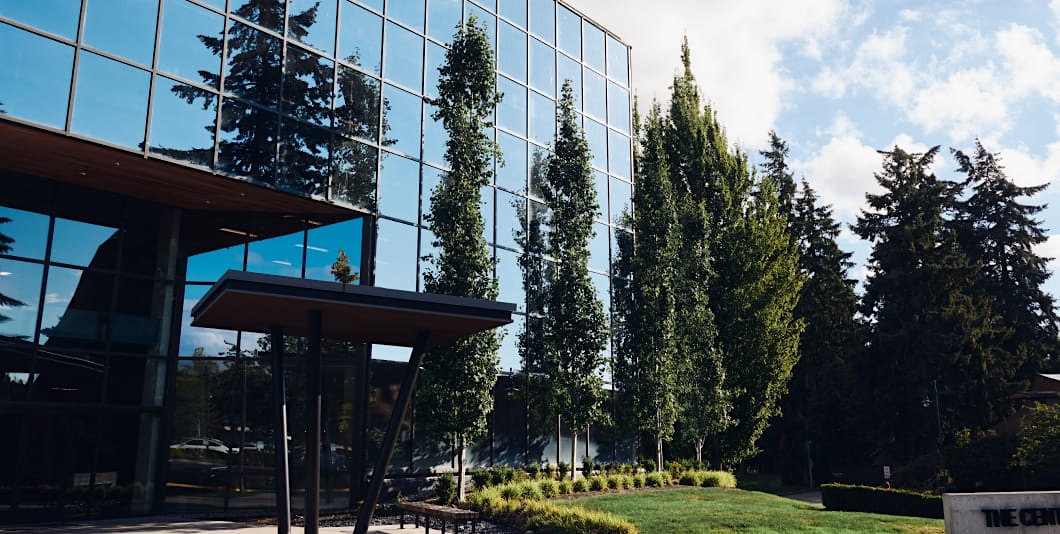
For many Washingtonians, ridesharing is becoming cheaper and more convenient than owning a car. In 2019, Uber and Lyft had a combined peak of 9,300,000 rides in Washington State. They are only two of the choices available, and many have found rideshare services to be their best transportation option. But say you’re injured when your rideshare driver is in an accident, or you’re in the vehicle they hit. How can you go about pursuing a claim, and who would you file it against? It first helps to understand how rideshare companies operate.
For most rideshares, the first thing you do is download the company’s official app. You can then set up and confirm your rides with only a few clicks. Once your ride is finished, you owe a set fee per mile driven that’s paid electronically. Cash never changes hands, and you and your driver can rate each other based on your experience. If all goes well, it is a very streamlined, efficient process. So, when you’re involved in an accident with a rideshare driver, what should you do?
The most important thing you can do right away is get to safety and call law enforcement. Having a police report will make the rest of the process easier. Get the insurance of the rideshare driver, both their own and what their company provides. Take as many photos and videos of the accident scene as you can. Get the contact information for any witnesses so your accident attorney can talk to them for you. You also need to receive medical treatment as soon as possible so your injuries are properly documented. But how is it that a rideshare accident can happen in the first place?

Common Cause of Accidents
A common cause of accidents, including rideshare accidents, is driver distraction. Rideshare drivers often rely on their company app or GPS systems like Google Maps to get around. This can be difficult to manage safely. “I think most rideshare drivers pay full attention since it’s their job,” case manager Kimberly at Park Chenaur Yoon says, “since they get graded by the companies and reviewed by customers.”
Unfortunately, checking a small screen to navigate makes it easier to miss a traffic light or oncoming vehicle. The other causes of accidents involving rideshare drivers include:
- Exhaustion
- Speeding/driving too fast for weather and traffic conditions
- Driving under the influence
- Failing to yield right of way
- Following another vehicle too closely
- Reckless driving
- Improperly maintained vehicle
- Defective parts on vehicle
Another unique cause for rideshare drivers can be the pressure they are under. The profitability of rideshare companies is based on drivers taking as many passengers as they can. Safety can be a lesser concern. Some of these causes can be linked to driver inexperience, either on the road generally or as rideshare drivers. Given the consequences that can arise, what is required to be a driver for Uber and Lyft?
Generally, you’d need a driver’s license, proof of insurance and vehicle registration, and to meet your state or city’s age requirements. You’d also need to pass a vehicle inspection, as well as a review of your driving history. Additionally, all rideshare companies are required to run personal background checks on prospective drivers, including for criminal history. Yet while passengers are relying on these checks for their own persona safety, rideshare companies have been unwilling to hire the drivers as their own employees.
Riders must rely on companies like Uber and Lyft to follow their standards and the law when selecting drivers. If they ignore what a background check tells them, that can put their passengers and other drivers at risk.

Drivers and Employment Status
The employment status of their drivers is perhaps the single largest ongoing legal issue for rideshare companies. Most companies categorize their drivers as independent contractors. This means they aren’t given the same wages, benefits, and protections under the law as employees are. This also sets them apart from most taxi drivers. While some own their own vehicles, most are employees of a taxicab company. This would make it easier to pursue a claim against the company for driver malfeasance. One other key difference is in how the companies treat them as workers.
“Taxi companies are more personal,” senior case manager Kimberly Yoon explains. “They’re smaller companies than Uber and Lyft, taxi drivers are their employees, they see them every day, they’re more protective of them than rideshare companies are.”
At the same time, taxi drivers have usually had more training at handling distractions. Because their drivers are employees, they’re also a bit more tightly regulated than rideshare companies. Washington State recognizes that this employment status issue has caused major problems for rideshare drivers. As such, Washington recently passed a law that mandates rideshare drivers receive
- Guaranteed minimum per trip payments
- Paid sick leave
- Workers’ compensation coverage for on-the-job injuries
- Access to a state provided resource center for all rideshare drivers
Uber and Lyft continue to fight regulations like these, mainly because the changes will affect their profits. This issue of driver classification continues to affect how any rideshare accident claim will play out.
Despite these recent changes, Uber and Lyft drivers in Washington State are still independent contractors. Employers can generally be held liable for an employee’s actions while on the clock. But this isn’t true when dealing with companies using independent contractors. It can be challenging to bring lawsuits against these companies directly. It isn’t impossible – these are ways to build a case against them. Here are some of the reasons for action against a rideshare company directly:
- Knowingly allowing someone to drive a defective or substandard vehicle
- Failing to run a background check that would identify a driver’s poor driving record or criminal history
- Failing to recognize past bad driving history or a criminal record found in that background check
- Knowingly allowing someone to drive for them who has a poor driving record or a criminal history
Companies like Uber and Lyft also rarely provide their drivers with training on safe driving. A claim might be made on this basis, but it isn’t a widely tested strategy. You’d want to discuss it with your personal injury attorney. In the end, there are usually three routes to recover damages if you’re in a rideshare accident. All these involve knowing exactly the phase of the trip the rideshare driver was in.

Accident Coverage Insurance
The simplest phase to deal with is if the driver’s rideshare app is off. They can’t take riders if it isn’t on, but they might still hit you or your car. If their app is off, you would be dealing with their personal auto insurance. If they don’t have any, you’ll need to file an Uninsured Motorist Claim with your own auto insurance. But once a rideshare driver’s app on is, coverage changes. Both Uber and Lyft provide the following to their drivers:
- $50,000 per person in liability coverage
- $100,000 in total per each accident in liability coverage
- $25,000 for property damage (vehicle repairs, car seat replacements, etc.)
Filing a claim depends on which company the driver was working for at the time. Both Uber’s and Lyft’s policies have what’s known as contingent liability when it comes to vehicle repairs. This means you would have to file a collision claim with your insurance first. Once it’s denied you can then file a claim with their auto insurance carrier. You might also have access to Medical Payments or Personal Injury Protection Coverage under their policies. These can help with medical bills, but always speak to your accident attorney. The coverage may not be available for every accident, and they can investigate this for you. Additionally, once you get to the third phase of rideshare driving more coverage is available.
The third phase is activated once the driver accepts a ride request and is enroute. This continues as they pick up their passenger and take them to their destination. In the third phase, Uber and Lyft offer $1,000,000 in maximum liability coverage for each accident. That might seem like a lot, but there are conditions to it being available to you. Both companies now offer only $300,000 in Underinsured/Uninsured Motorist coverage. Additionally, Uber’s specifically includes coverage for hit runs while Lyft’s does not directly mention them. You’ll still need collision coverage on your own policy if you want to use theirs for vehicle repairs. Surprisingly, many of these same standards apply to delivery companies and how they handle accidents.
By now most people have ordered food from a company like Uber Eats, DoorDash, or GrubHub. Or maybe they’ve had groceries delivered by a company like Instacart. Almost everyone has had a package delivered via Amazon Delivery. Like rideshare companies, drivers for these companies are independent contractors, not employees. If you’re in an accident with one, suing their company would be just as hard as suing Uber or Lyft. One obvious difference that sets these drivers apart is that they don’t transport passengers. Many rideshare companies have you electronically sign a waiver before using their services. Per these waivers, you can’t hold them liable for any injuries you suffer while being driven. But as delivery companies don’t transport passengers these waivers are not used.
One other difference involves auto insurance itself. Some companies like GrubHub and Instacart don’t provide it to their drivers like Uber and Lyft do. These delivery drivers need to get a rideshare or business endorsements for their own policy. Anyone using a personal car for commercial purposes is required to get an endorsement like this, including rideshare drivers. You can see how dealing with various the insurance carriers after an accident can be a massive headache. This is a major reason you’ll want to have a good personal injury attorney by your side.
Hiring Car Accident Lawyer
When hiring your car accident lawyer, you’ll want one with experience in pursuing rideshare claims. They can sort out which insurance carriers to file a claim against and can handle interactions with rideshare companies for you. Both issues can be a major challenge for rideshare accident victims.
“It’s a little bit harder to contact a rideshare company because they’re all online,” Kimberly Yoon explains, “and there’s often no person to talk to until after a claim is set up. Even after that it’s quite hard,” she said, “like with wage loss claims – they put it all on the client.”
Gathering wage loss claim paperwork is one more task your car accident lawyer can do for you. They’ll also investigate your claim and gather any evidence like video footage or statements from witnesses. They’ll help you find the right medical providers to treat your injuries, including any specialists you might need. While they work towards settlement, they can take your claim to court if necessary. They will fiercely pursue a lawsuit on your behalf, even against the rideshare companies themselves.
Rideshare accident lawsuits are typically against either the driver’s own rideshare insurance or Uber’s or Lyft’s insurance. These cases can be very similar to personal injury lawsuits against a regular driver’s insurance. It’s when you go up against rideshare or delivery companies themselves that the real challenges arise. Because their drivers are independent contractors, the companies aren’t liable in the same way an employer would be. Additionally, rideshare companies will always try to use the waiver they made you sign against you.
They may also try to force you into mandatory arbitration. This involves a neutral third party looking at the facts and deciding how to resolve your case. However, the process can favor companies, as ruling in their favor makes it more likely the arbitrator will be hired in the future. An experienced trial lawyer will know how to force your case into the courts. They’ll also gather any evidence that these companies violated their own policies in a way that makes them liable. A good trial lawyer will never promise you a specific outcome. But if you work with an attorney you trust, you’ll have the best chance possible to win your case.
Rideshare companies have changed the way we get around. If one of their drivers causes your accident, it can be confusing to figure out who is responsible. This is especially true when you want to focus on your recovery. We here at Park Chenaur and Associates have many years of experience pursuing cases against insurers and rideshare companies. We understand how overwhelming it can be when you’re in accident. We know that you’ll need support whether you’re hit by another driver or are a passenger in their vehicle. No matter how long it takes, we’ll be at your side fighting to get you the justice you deserve.












